31 Jan 01/31/2024
Gardening Gloves
When the weather warms up, and many of us are moving outside to get our yards in tip-top shape. There is no doubt when spring hits—it’s gardening and landscaping season! As you prepare to head out into the sunshine, it’s best to take note of the supplies you’ll need. If you’re on this page, you’ve already been asking an important question: Do I have the right gardening gloves “on-hand”?
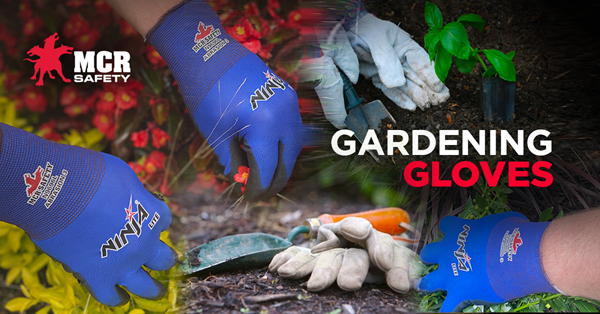
You need supplies and tools, including gloves, when gardening, and landscaping.
Are you growing plants for food or getting your shrubs and flowerbeds looking their very best? There are all kinds of gardening styles: fruit orchards, boulevard plantings, container gardens, residential gardens, lawn care, and foundation plantings. Regardless if you’re a professional landscaper or a DIY gardener, you know that the work is just beginning.
The spring gardening to-do list might seem long—especially in the landscaping industry, and you’re caring for multiple properties. With so much to accomplish, you can count on spending quite a few hours getting the garden and yard looking beautiful. One of the best ways you can make your job a little easier is by protecting your hands. Gloves help safeguard your hands against thorns, dirt, and grime, and wearing the right gloves for the job can make gardening more enjoyable!
Whether you’re starting a project at home, ramping up landscaping activities, or preparing to make this year’s garden an all-time hit, you need to have the right gloves. What should you consider in choosing the right pair of outdoor gardening and landscaping gloves to get the job done and keep your hands intact?
Hold on to your tools, that’s what we’re about to dig up in the article below.
Choosing Gardening Gloves
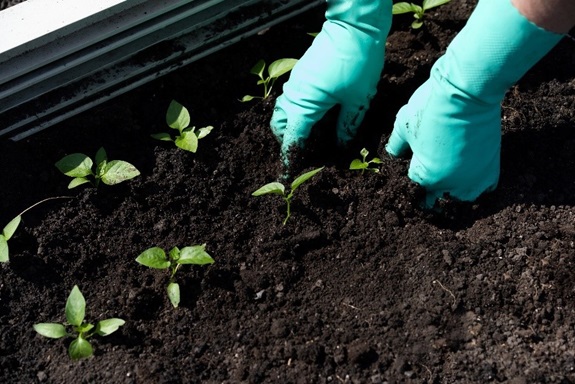
How do you pick the right gloves for your gardening project? You want to find the perfect match of protective coverage and dexterity. Here are a few things to consider when choosing a pair of gardening gloves:
The Fit
Just like you don’t want a pair of gloves that is far too small, a pair of gloves that is too large can be cumbersome and hard to work with—and more dangerous if you’re engaged in tasks like operating power tools such as a chainsaw, tiller, or edger. Gloves that are the wrong size can affect your grip and your ability to handle tools safely.
We carry a wide range of sizing. Visit our online glove catalog to find the best glove for you!
Likewise, gloves that are too loose can slip and cause uncomfortable chafing. Stones and dirt can more easily work their way into loose-fitting gloves and cause rubbing and irritation. You want your gloves to be fitted but not too snug.
The Dexterity and Durability
You need a certain amount of finesse for some gardening tasks, which is why having a pair of gloves that inhibit your ability to feel or gloves that are too bulky could get in the way. However, for heavy-duty jobs, you need gloves that can stand up to the stress and protect your hands while still offering ease of movement. How much dexterity do you need?
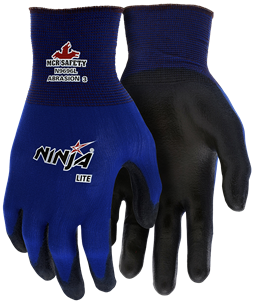

Don’t let the N9696’s lightweight feel fools you. It scores an abrasion level 3—reliable performance for such a lightweight glove!
Some gloves need to be more touch-sensitive than others, and other pairs will need to be bulkier to protect you from heavy machinery, blistering, or thorns or sharp rocks in the soil. Finding gloves that are the right balance of dexterity and durability for each task is essential.
Other Considerations
Do you need to have a good grip on a tool? Maybe you need a pair of gloves with rubber grippers. If you are spraying pesticides, liquid fertilizers, or fungicides, you need waterproof gloves to shield your skin from harsh chemicals. Having the right pair of gloves is all about safety.
Types of Gardening Gloves
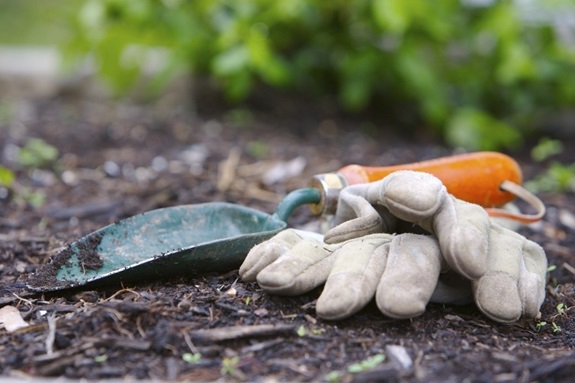
Which type of gardening glove is right for you? That all depends on what you need them for and how you will be using them. Here’s what you need to know about each kind of gardening glove:
Leather Garden Gloves
Many professional and hobby gardeners prefer leather gloves for their outdoor work. Leather gloves are sturdy, durable, and flexible, and they are great for heavy-duty work, such as using specific tools, dealing with thorny plants, or moving rocks.
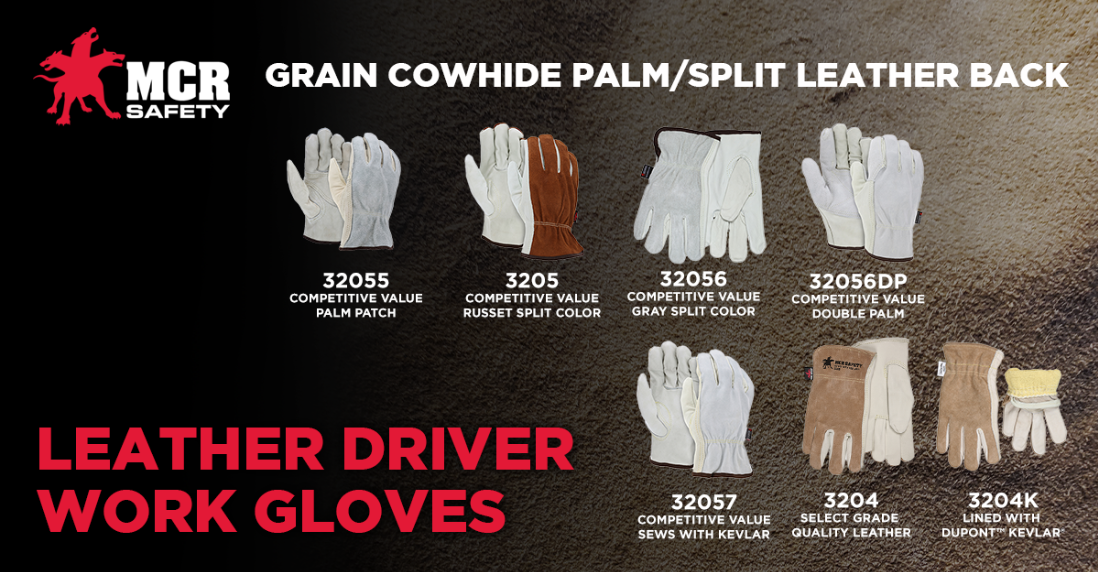
You can find many types of leather gloves, including pigskin, which is very flexible and works great in wet conditions, or goatskin, which is incredibly puncture-resistant and soft to the touch. You may prefer cowhide gloves or split leather gloves because they are sturdy, resistant to abrasion, and offer a good grip. Rugged or synthetic leather gloves are protective and can even go in the wash!
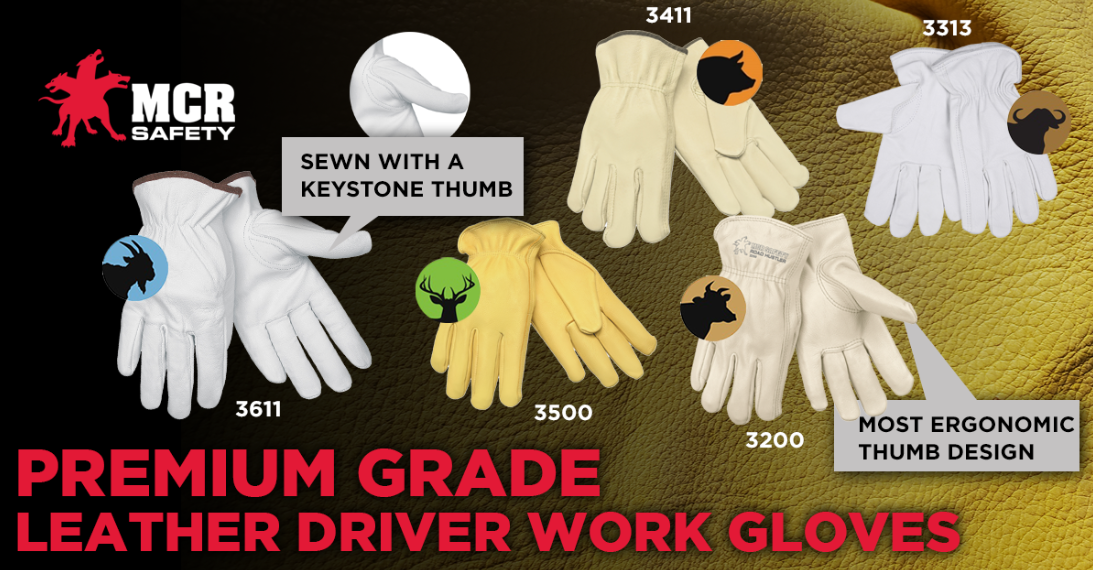
Nitrile Garden Gloves
Nitrile gardening gloves are another popular option because they are incredibly tough. They are flexible and pliable while still remaining puncture-resistant. The palms and fingers of nitrile gloves are coated in a thin, durable material that makes them able to withstand even the prickliest of thorns.
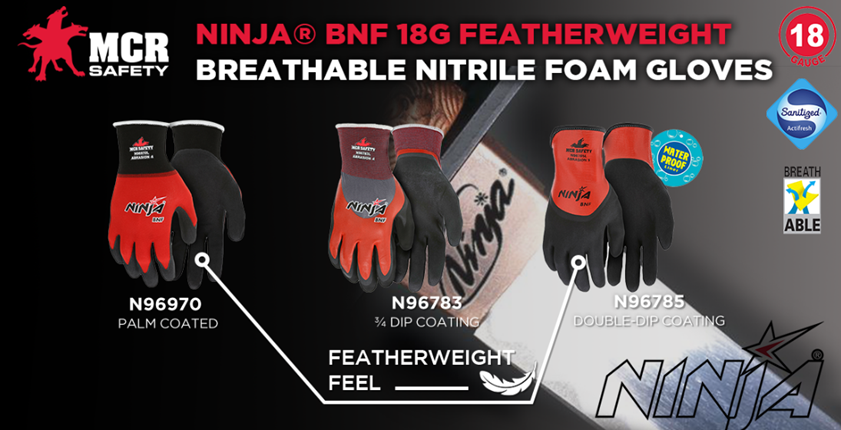
They also are breathable, easily washable, and provide more dexterity than some stiffer, thicker gardening gloves. These features are what make nitrile gloves a favorite for many avid gardeners.
Cotton Garden Gloves
Cotton garden gloves have been a long-time favorite because they can be worn all year—they are soft, lightweight, and are great for using tools. Many choose to wear them when they are handling tools like the lawnmower, trimmer, or chainsaw. Cotton gloves are easily washable and can even go in the dryer, making them extremely versatile for use around the garden.
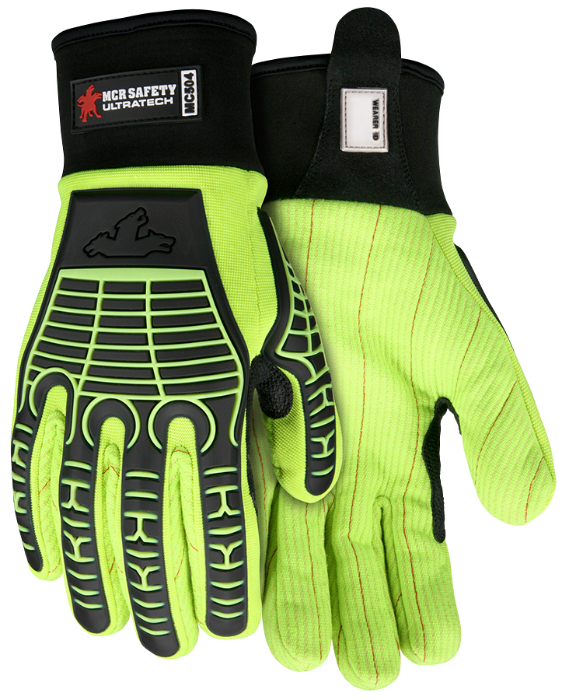
MC504 Cotton Glove with Back-of-Hand Protection
Today’s cotton gloves are a little more advanced than those you may have worn in the past. They are now equipped with back-of-hand protection and reinforcements. All cotton work gloves can be found here.
Waterproof Gardening Gloves
If you are mixing pesticides, fungicides, or fertilizers, waterproof gloves can keep your hands from being exposed to harsh chemicals. Also, if you’re dealing with a lot of water or moisture, waterproof gloves can keep your hands from turning into prunes after absorbing all that moisture in the soil.
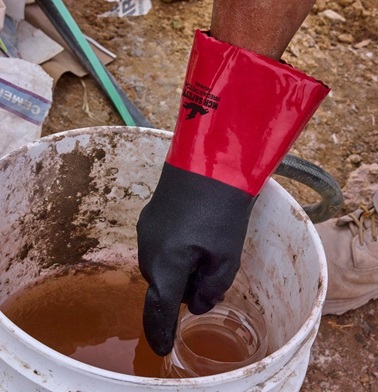
MG9648 is super lightweight and waterproof!
Waterproof gloves are also great when your work keeps you outside, and the weather turns wet or chilly; they can help shield you from getting too wet or too cold.
Long Gardening Gloves
There are times when you are working in the yard and need your entire arm to be protected. In these instances, it can be helpful to have long or elbow-length gardening gloves on hand, but these are not always available in stores.
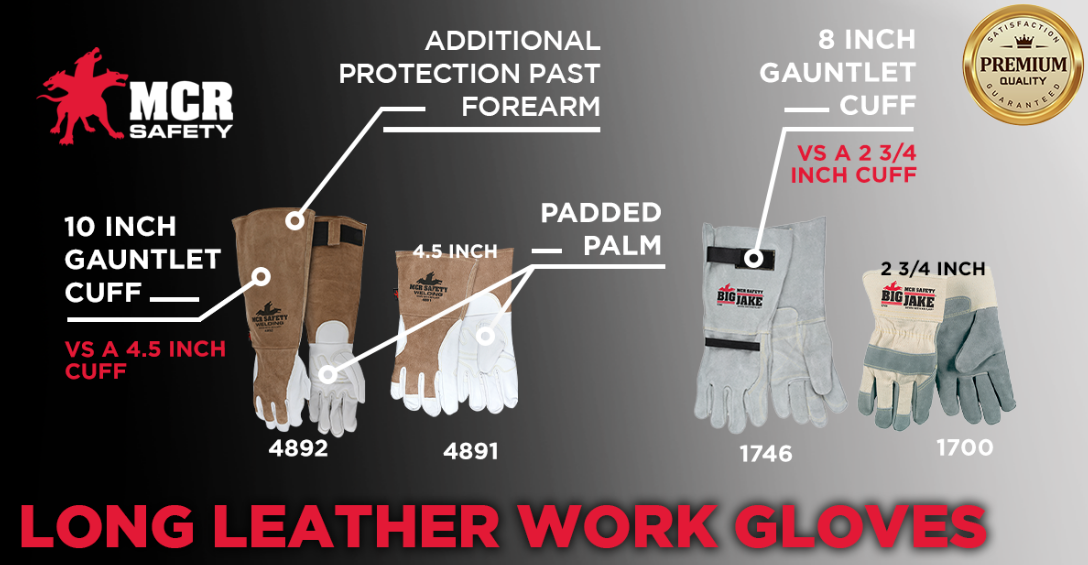
If you are pruning deep rose bushes or handling lots of spiny brambles, your arms can quickly get scratched up without a pair of long gardening gloves to protect you. You can even choose a pair with an adjustable band at the cuff for added protection and staying power.
Kids’ Gardening Gloves
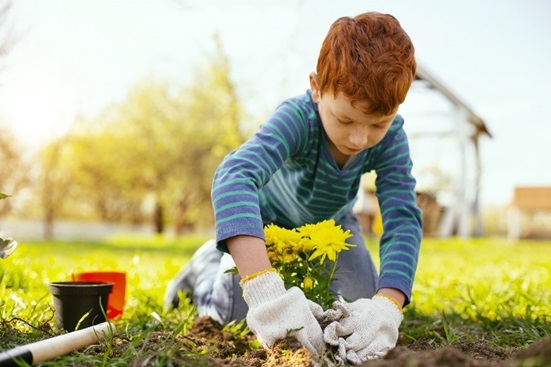
Don’t leave your kids gloveless! You can get the whole family involved in yard work as long as you have gloves to fit smaller hands. Like having a “grown-up” version for you, your children should have gloves to protect their skin from dirty soil and sharp or prickly vegetation.
We carry a wide range of sizing. Visit our online glove catalog to find the best glove for you!
These gloves have the same qualities as their adult-sized counterparts and can help you instill in your kids a sense of ownership in their garden and pride in their hard work. To find the smaller sizing kids’ hands require, use our online glove catalog and filter down to styles with an XS or small size available.
How to Clean Your Gardening Gloves
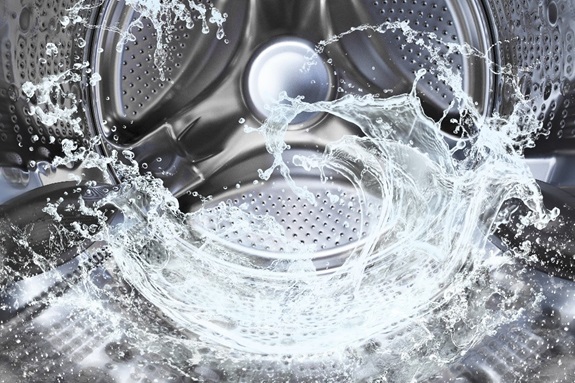
Wearing PPE on the job or in the yard at home is essential to keep you safe from cuts and scratches, infection, and the harsh chemicals we sometimes encounter when gardening.
After wearing your gardening gloves for some time, they are bound to get dirty—after all, they are what shield your hands from dirt and hazards. However, contaminants like soil and lawn chemicals can shorten the life of your gloves and lead to unnecessary wear and tear.
Each pair of gardening gloves requires different washing instructions. For example, you wouldn’t wash a pair of leather gloves the same way you would wash cotton or nitrile gloves. No matter the kind of gloves, though, any extra soil or contaminants can leave your gloves feeling stiff and restrictive and can lead to irreparable damage. So, what’s the best way to keep each kind of gloves clean?
Cleaning Leather Gloves
Leather quality directly affects how many times you can clean a pair of leather gloves, which is another reason to invest in a high-quality pair of leather gloves if you want them to last. Cleaning your leather gardening gloves may make you nervous, but if you are careful, cleaning should extend the life of your gloves.
Leather gardening gloves should be dry-cleaned in a front-loading commercial washer with solvents and chemicals specifically designed for use on leather. The number of cycles of wash will depend on how soiled the gloves are. Above all, to prevent water damage, the water should be between 110° and 140°F for a period of four to six minutes. Gloves can be air-dried in a tumbler for up to 20 minutes at a temperature of 110°-120°F with hard rubber balls to prevent stiffness.
You can read more about the care of leather gloves, waterproof, and cotton gloves on our Washing PPE blog.
Gardening Activities
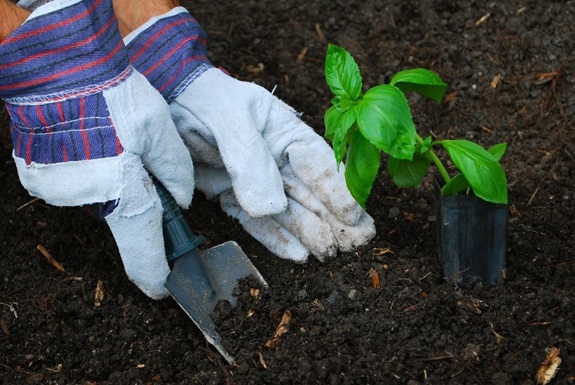
There are all kinds of work to be done in the garden. Whether you are sprucing up your landscaping, cultivating a fruit and vegetable garden, or preparing the soil for planting, there’s no real secret to having a “green thumb” besides putting in a lot of work.
But who says you can’t have a little fun with all the work that must be completed? There are all kinds of activities you can explore while working in the garden and outside. Here are just a few to consider:
- Build a sunflower house or maze with giant, monster-sized sunflowers and start your project from seed.
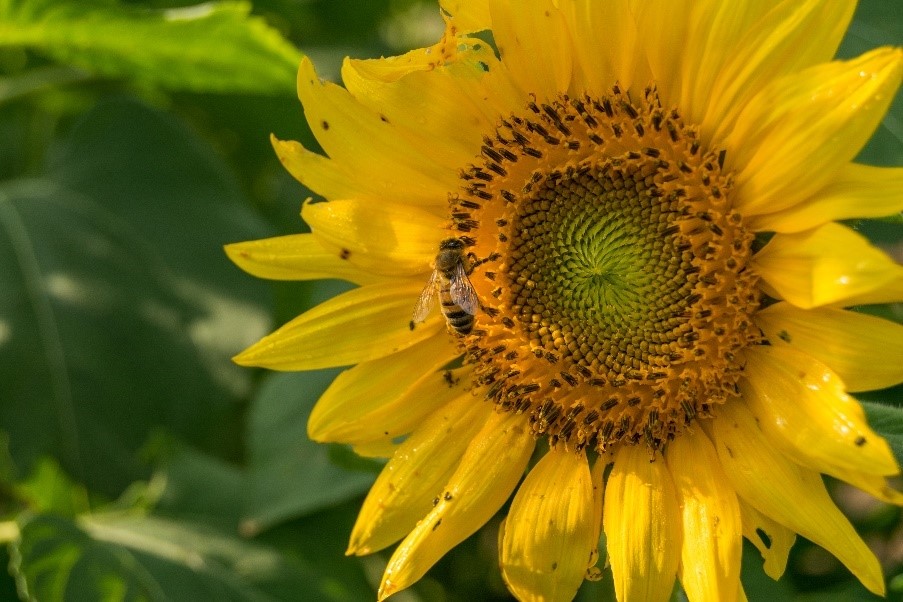
- Plant an herb garden or vegetable garden and grab lettuce for your afternoon salad or sandwich from your own back yard.
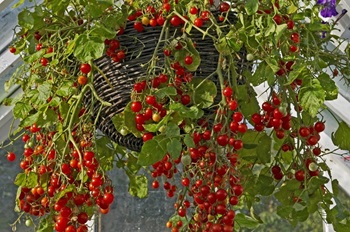
You may also plant beautiful hanging baskets outdoors or start a compost pile.
- You even can bring the outside in with a homemade terrarium or a potted plant to set in the window.
- Maybe you’re focusing on hardscaping your yard with paving stones, gravel, or brick, or you might have some mulch to spread around in each of your flower beds.
What’s the common denominator in all of these projects? You should be prepared to get your hands a little dirty. No matter the project, it helps to have the right pair of gloves to protect your hands from dirt, scratches, and the general wear and tear that working in the garden can have on your hands.
Common Questions

What are gloves used for in a garden?
- Hands get dirty working in the yard. Also, there are concerns about abrasion, cut, and puncture injuries. Chemical concerns may be present, too. MCR Safety has you covered with glove options that can protect your hands from all these dangers.
What are the best gardening gloves?
- As we noted above, it all depends on what type of protection is required. If you’re concerned about thorny rose bushes, our Ninja Lite style doesn’t make much sense. You would be better off going with a thicker leather product, one with cut and puncture protection.
Where can I buy gardening gloves?
- Leave us a comment below, and we will provide you with a location in your area that stocks MCR Safety gloves. You can also request a quote to expedite getting the product out to you.
Where can I buy kids’ gardening gloves near me?
- You’ll notice in our above image we have XX-small gloves and X-small gloves in a multitude of styles. A similar answer to the above question is to leave a note in the comment box below, and we will provide you with some options. You can also request a quote to expedite getting the product out to you.
How much do garden gloves cost?
- Each distributor’s cost for MCR Safety gardening gloves will vary. You can request a quote to any MCR Safety item, and we will have a distributor look at stocking. You can also request to purchase the item through our expedited Buy and Try program.
MCR Safety: The Best Gloves for Gardening
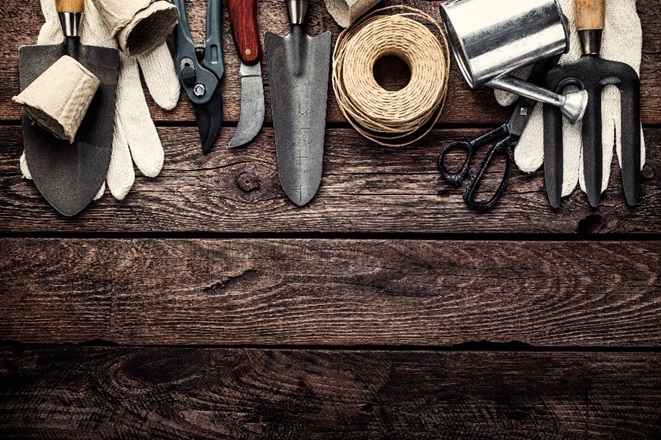
As with anything else, we want you to stay safe while working in the garden, which is why we provide a range of options to fit every project and a pair of gloves to fit every gardener. You wouldn’t use the wrong lumber or incorrect nails to build your home, and you shouldn’t have to deal with the wrong pair of gloves when you’re working in your yard, either.
MCR Safety’s gardening gloves are sold by distributors all over the world. Please leave us a comment below, and we can let you know who stocks gloves within your local area. You can also expedite trial products by visiting the Buy & Try page of our website. Or, you can request a quote for any gloves mentioned above.
We welcome any comments, feedback or suggestions for how we can best protect people at work.
For over 45 years, MCR Safety has proven to be a world leader in gloves, glasses, and garments. Whether it’s on the shop floor, an oil rig, or a construction site, we are there providing solutions to workplace hazards. It’s all part of our commitment to protect people.
No matter your industry, we have the personal protective equipment you need.

Learn more about MCR Safety by checking out our most recent video. For more information, browse our website, request a catalog, find a distributor, or give us a call at 800-955-6887.
About the Author
Latest Articles









